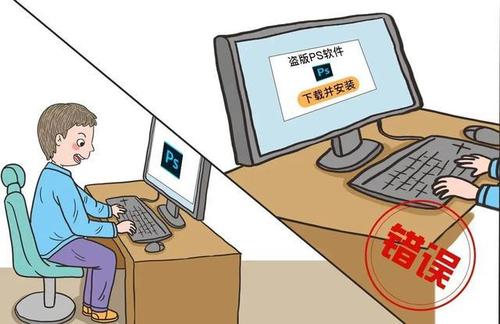有没有往年的研究生学位英语题目
 娃娃谷
娃娃谷2011年6月北京地区研究生学位英语考试试题及答案
 红颜劫
红颜劫 不为祸始
不为祸始
2011年6月北京地区研究生学位英语考试试题学位英语标准答案 BBACC ABCBC DCCAD CABDA CBDAC BCAAB CACBCBADCA BACCBACBBD ABDCA BCACD CDBDC BDBCB DACAA有试题吗,光答案没用啊,发到这里吧446164067@qq.com,谢谢啦!本回答被提问者和网友采纳
哪里可以找到07硕士学位英语试题及答案
 目之与形
目之与形 幻游传
幻游传
2007年全国硕士研究生入学统一考试英语试题Section I Use of EnglishDirections:Read the following text. Choose the best word(s) for each numbered blank and mark [A], [B], [C] or [D] on ANSWER SHEET 1. (10 points)By 1830, the former Spanish and Portuguese colonies had become independent nations. The roughly 20 million __1__ of these nations looked __2__ to the future. Born in the crisis of the old regime and Iberian Colonialism, many of the leaders of independence __3__ the ideas of representative government, careers __4__ to talent, freedom of commerce and trade in the __5__ to private property, and a belief in the indivial as the basis of society. __6__ there was a belief that the new nations should be sovereign and independent states, large enough to be economically viable and integrated by a __7__ set of laws.On the issue of __8__ of religion and the position of the church, __9__, there was less agreement __10__ the leadership. Roman Catholicism had been the state religion and the only one __11__ by the Spanish crown, __12__ most leaders sought to maintain Catholicism __13__ the official religion of the new states, some sough to end the __14__ of other faiths. The defense of the Church became a rallying __15__ for the conservative forces.The ideals of the early leaders of independence were often egalitarian, valuing equality of everything. Bolivar had received aid from Haiti and had __16__ in return to abolish slavery in the areas he liberated. By 1854 slavery had been abolished everywhere except Spain’s __17__ colonies. Early promises to end Indian tribute and taxes on people of mixed origin came much __18__ because the new nations still needed the revenue. Such policies __19__ Egalitarian sentiments were often tempered by fears that the mass of the population was __20__ self-rule and democracy.1. [A] natives[B] inhabitants[C] people[D] indivials2. [A] confusedly[B] cheerfully[C] worriedly[D] hopefully3. [A] shared[B] forgot[C] attained[D] rejected4. [A] related[B] close[C] open[D] devoted5. [A] access[B] succession[C] right[D] return6. [A] Presumably[B] Incidentally[C] Obviously[D] Generally7. [A] unique[B] common[C] particular[D] typical8. [A] freedom[B] origin[C] impact[D] reform9. [A] therefore[B] however[C] indeed[D] moreover10. [A] with[B] about[C] among[D] by11. [A] allowed[B] preached[C] granted[D] funded12. [A] Since[B] If[C] Unless[D] While13. [A] as[B] for[C] under[D] against14. [A] spread[B] interference[C] exclusion[D] influence15. [A] support[B] cry[C] plea[D] wish16. [A] urged[B] intended[C] expected[D] promised17. [A] controlling[B] former[C] remaining[D] original18. [A] slower[B] faster[C] easier[D] tougher19. [A] created[B] proced[C] contributed[D] preferred20. [A] puzzled by[B] hostile to[C] pessimistic about[D] unprepared forSection II 大家 Reading ComprehensionPart ADirections:Read the following four texts. Answer the questions below each text by choosing [A], [B], [C], or [D]. Mark your answers on ANSWER SHEET 1. (40 points)Text 1If you were to examine the birth certificates of every soccer player in 2006’s World Cup tournament, you would most likely find a noteworthy quirk: elite soccer players are more likely to have been born in the earlier months of the year than in the late months. If you then examined the European national youth teams that feed the World Cup and professional ranks, you would find this strange phenomenon to be ever more pronounced.What might account for this strange phenomenon? Here are a few guesses: a) certain astrological signs confer superior soccer skills; b) winter born babies tend to have higher oxygen capacity, which increases soccer stamina; c) soccer-mad parents are more likely to conceive children in springtime, at the annual peak of soccer mania; d) none of the above.Anders Ericsson, a 58-year-old psychology professor at Florida State University, says he believes strongly in “none of the above.” Ericsson grew up in Sweden, and studied nuclear engineering until he realized he would have more opportunity to conct his own research if he switched to psychology. His first experiment, nearly 30 years ago, involved memory: training a person to hear and then repeat a random series of numbers. “With the first subject, after about 20 hours of training, his digit span had risen from 7 to 20,” Ericsson recalls. “He kept improving, and after about 200 hours of training he had risen to over 80 numbers.”This success, coupled with later research showing that memory itself is not genetically determined, led Ericsson to conclude that the act of memorizing is more of a cognitive exercise than an intuitive one. In other words, whatever inborn differences two people may exhibit in their abilities to memorize, those differences are swamped by how well each person “encodes” the information. And the best way to learn how to encode information meaningfully, Ericsson determined, was a process known as deliberate practice. Deliberate practice entails more than simply repeating a task. Rather, it involves setting specific goals, obtaining immediate feedback and concentrating as much on technique as on outcome.Ericsson and his colleagues have thus taken to studying expert performers in a wide range of pursuits, including soccer. They gather all the data they can, not just performance statistics and biographical details but also the results of their own laboratory experiments with high achievers. Their work makes a rather startling assertion: the trait we commonly call talent is highly overrated. Or, put another way, expert performers – whether in memory or surgery, ballet or computer programming – are nearly always made, not born.21. The birthday phenomenon found among soccer players is mentioned to[A] stress the importance of professional training.[B] spotlight the soccer superstars at the World Cup.[C] introce the topic of what makes expert performance.[D] explain why some soccer teams play better than others.22. The word “mania” (Line 4, Paragraph 2) most probably means[A] fun.[B] craze.[C] hysteria.[D] excitement.23. According to Ericsson, good memory[A] depends on meaningful processing of information.[B] results from intuitive rather than cognitive exercises.[C] is determined by genetic rather than psychological factors.[D] requires immediate feedback and a high degree of concentration.24. Ericsson and his colleagues believe that[A] talent is a dominating factor for professional success.[B] biographical data provide the key to excellent performance.[C] the role of talent tends to be overlooked.[D] high achievers owe their success mostly to nurture.25. Which of the following proverbs is closest to the message the text tries to convey?[A] “Faith will move mountains.”[B] “One reaps what one sows.”[C] “Practice makes perfect.”[D] “Like father, like son.”Text 2For the past several years, the Sunday newspaper supplement Parade has featured a column called “Ask Marilyn.” People are invited to query Marilyn vos Savant, who at age 10 had tested at a mental level of someone about 23 years old; that gave her an IQ of 228 – the highest score ever recorded. IQ tests ask you to complete verbal and visual analogies, to envision paper after it has been folded and cut, and to dece numerical sequences, among other similar tasks. So it is a bit confusing when vos Savant fields such queries from the average Joe (whose IQ is 100) as, What’s the difference between love and fondness? Or what is the nature of luck and coincidence? It’s not obvious how the capacity to visualize objects and to figure out numerical patterns suits one to answer questions that have eluded some of the best poets and philosophers.Clearly, intelligence encompasses more than a score on a test. Just what does it mean to be smart? How much of intelligence can be specified, and how much can we learn about it from neurology, genetics, computer science and other fields?The defining term of intelligence in humans still seems to be the IQ score, even though IQ tests are not given as often as they used to be. The test comes primarily in two forms: the Stanford-Binet Intelligence Scale and the Wechsler Intelligence Scales (both come in alt and children’s version). Generally costing several hundred dollars, they are usually given only by psychologists, although variations of them populate bookstores and the World Wide Web. Superhigh scores like vos Savant’s are no longer possible, because scoring is now based on a statistical population distribution among age peers, rather than simply dividing the mental age by the chronological age and multiplying by 100. Other standardized tests, such as the Scholastic Assessment Test (SAT) and the Graate Record Exam (GRE), capture the main aspects of IQ tests.Such standardized tests may not assess all the important elements necessary to succeed in school and in life, argues Robert J. Sternberg. In his article “How Intelligent Is Intelligence Testing?”, Sternberg notes that traditional test best assess analytical and verbal skills but fail to measure creativity and practical knowledge, components also critical to problem solving and life success. Moreover, IQ test do not necessarily predict so well once populations or situations change. Research has found that IQ predicted leadership skills when the tests were given under low-stress conditions, but under high-stress conditions, IQ was negatively correlated with leadership – that is, it predicted the opposite. Anyone who has toiled through SAT will testify that test-taking skill also matters, whether it’s knowing when to guess or what questions to skip.26. Which of the following may be required in an intelligent test?[A] Answering philosophical questions.[B] Folding or cutting paper into different shapes.[C] Telling the difference between certain concepts.[D] Choosing words or graphs similar to the given ones.27. What can be inferred about intelligence testing from Paragraph 3?[A] People no longer use IQ scores as an indicator of intelligence.[B] More versions of IQ tests are now available on the Internet.[C] The test contents and formats for alts and children may be different.[D] Scientists have defined the important elements of human intelligence.28. People nowadays can no longer achieve IQ scores as high as vos Savant’s because[A] the scores are obtained through different computational proceres.[B] creativity rather than analytical skills is emphasized now.[C] vos Savant’s case is an extreme one that will not repeat.[D] the defining characteristic of IQ tests has changed.29. We can conclude from the last paragraph that[A] test scores may not be reliable indicators of one’s ability.[B] IQ scores and SAT results are highly correlated.[C] testing involves a lot of guesswork.[D] traditional test are out of date.30. What is the author’s attitude towards IQ test?[A] Supportive.[B] Skeptical.[C] Impartial.[D] Biased.Text 3During the past generation, the American middle-class family that once could count on hard work and fair play to keep itself financially secure had been transformed by economic risk and new realties. Now a pink slip, a bad diagnosis, or a disappearing spouse can rece a family from solidly middle class to newly poor in a few months.In just one generation, millions of mothers have gone to work, transforming basic family economics. Scholars, policymakers, and critics of all stripes have debated the social implications of these changes, but few have looked at the side effect: family risk has risen as well. Today’s families have budgeted to the limits of theirs new two-paycheck status. As a result, they have lost the parachuted they once had in times of financial setback – a back-up earner (usually Mom) who could go into the workforce if the primary earner got laid off or fell sick. This “added-worker effect” could support the safety net offered by unemployment insurance or disability insurance to help families weather bad times. But today, a disruption to family fortunes can no longer be made up with extra income from an otherwise-stay-at-home partner.During the same period, families have been asked to absorb much more risk in their retirement income. Steelworkers, airline employees, and now those in the auto instry are joining millions of families who must worry about interest rates, stock market fluctuation, and the harsh reality that they may outlive their retirement money. For much of the past year, President Bush campaigned to move Social Security to a saving-account model, with retirees trading much or all of their guaranteed payments for payments depending on investment returns. For younger families the picture is not any better. Both the absolute cost of healthcare and the share of it borne by families have risen – and newly fashionable health-saving plans are spreading from legislative halls to Wal-Mart workers, with much higher dectibles and a large new dose of investment risk for families’ future healthcare. Even demographics are working against the middle class family, as the odds of having a weak elderly parent – and all the attendant need for physical and financial assistance – have jumped eightfold in just one generation.From the middle-class family perspective, much of this, understandably, looks far less like an opportunity to exercise more financial responsibility, and a good deal more like a frightening acceleration of the wholesale shift of financial risk onto their already overburdened shoulders. The financial fallout has begun, and the political fallout may not be far behind.31. Today’s double-income families are at greater financial risk in that[A] the safety net they used to enjoy has disappeared.[B] their chances of being laid off have greatly increased.[C] they are more vulnerable to changes in family economics.[D] they are deprived of unemployment or disability insurance.32. As a result of President Bush’s reform, retired people may have[A] a higher sense of security.[B] less secured payments.[C] less chance to invest.[D] a guaranteed future.33. According to the author, health-savings plans will[A] help rece the cost of healthcare.[B] popularize among the middle class.[C] compensate for the reced pensions.[D] increase the families’ investment risk.34. It can be inferred from the last paragraph that[A] financial risks tend to outweigh political risks.[B] the middle class may face greater political challenges.[C] financial problems may bring about political problems.[D] financial responsibility is an indicator of political status.35. Which of the following is the best title for this text?[A] The Middle Class on the Alert[B] The Middle Class on the Cliff[C] The Middle Class in Conflict[D] The Middle Class in RuinsText 4It never rains but it pours. Just as bosses and boards have finally sorted out their worst accounting and compliance troubles, and improved their feeble corporation governance, a new problem threatens to earn them – especially in America – the sort of nasty headlines that inevitably lead to heads rolling in the executive suite: data insecurity. Left, until now, to odd, low-level IT staff to put right, and seen as a concern only of data-rich instries such as banking, telecoms and air travel, information protection is now high on the boss’s agenda in businesses of every variety.Several massive leakages of customer and employee data this year – from organizations as diverse as Time Warner, the American defense contractor Science Applications International Corp and even the University of California, Berkeley – have left managers hurriedly peering into their intricate IT systems and business processes in search of potential vulnerabilities.“Data is becoming an asset which needs to be guarded as much as any other assets, says Haim Mendelson of Stanford University’s business school. “The ability to guard customer data is the key to market value, which the board is responsible for on behalf of shareholders.” Indeed, just as there is the concept of Generally Accepted Accounting Principles (GAAP), perhaps it is time for GASP, Generally Accepted Security Practices, suggested Eli Noam of New York’s Columbia Business School. “Setting the proper investment level for security, rendancy, and recovery is a management issue, not a technical one,” he says.The mystery is that this should come as a surprise to any boss. Surely it should be obvious to the dimmest executive that trust, that most valuable of economic assets, is easily destroyed and hugely expensive to restore – and that few things are more likely to destroy trust than a company letting sensitive personal data get into the wrong hands.The current state of affaires may have been encouraged – though not justified – by the lack of legal penalty (in America, but not Europe) for data leakage. Until California recently passed a law, American firms did not have to tell anyone, even the victim, when data went astray. That may change fast: lots of proposed data-security legislation is now doing the rounds in Washington, D.C. Meanwhile, the theft of information about some 40 million credit-card accounts in America, disclosed on June 17th, overshadowed a hugely important decision a day earlier by America’s Federal Trade Commission (FTC) that puts corporate America on notice that regulators will act if firms fail to provide adequate data security.36. The statement “It never rains but it pours” is used to introce[A] the fierce business competition.[B] the feeble boss-board relations.[C] the threat from news reports.[D] the severity of data leakage.37. According to Paragraph 2, some organizations check their systems to find out[A] whether there is any weak point.[B] what sort of data has been stolen.[C] who is responsible for the leakage.[D] how the potential spies can be located.38. In bringing up the concept of GASP the author is making the point that[A] shareholders’ interests should be properly attended to.[B] information protection should be given e attention.[C] businesses should enhance their level of accounting security.[D] the market value of customer data should be emphasized.39. According to Paragraph 4, what puzzles the author is that some bosses fail to[A] see the link between trust and data protection.[B] perceive the sensitive of personal data.[C] realize the high cost of data restoration.[D] appreciate the economic value of trust.40. It can be inferred from Paragraph 5 that[A] data leakage is more severe in Europe.[B] FTC’s decision is essential to data security.[C] California takes the lead in security legislation.[D] legal penalty is a major solution to data leakage.Part B参考资料:http://www.100e.biz/blog/article.asp?id=112&page=15
求2012年研究生学位英语考试真题
 子也
子也 莫里斯
莫里斯
楼主你可以去上学吧资料分享中心去看看 ,那里有很多这方面的资料,当然也还有很多其他方面的资料,你若有资料的话也可以上传到那的,别人来下载你就可以可以挣钱的哦这个楼主还是买一份真题比较好,也不是很贵,貌似现在应该出来了,还带有答案,很详细的,不亏,不要舍不得这些小钱,毕竟时间比较紧了。
2013年6月研究生学位英语全国统考真题及答案详解
 高电压
高电压研究生一定要考“研究生学位英语考试”么?
 哭丧女
哭丧女研究生学位英语考试与研究生英语四六级考试有什么区别
 符箓
符箓 创刊号
创刊号
首先研究生没有四六级,本科生才有四六级是水平考试,就是难度不会太大,考试有一定技巧,考的是跳读。比如说,阅读题一般出自转折,递进等句子。文中出现的例子是为了论证论点的,所以也不用看。时间比较紧,每篇文章比考研英语多几十个词。研究生英语则是考察英语的深度,单词量在5500左右,核心词汇则更少,但是常常考察熟词生意,研究生英语是为了选拔继续深造的学生的。之后的学习不免会查阅很多外文资料,只像考tem那样速读是不行的,要的是精读,不会精读自然就不适合之后的学习。因此,考研英语是没有什么技巧的。像上面说的,四六级中的例子不用看,但是考研的例子也是出题范围,说白了就是每一个句子都要读。4篇阅读,时间有70分钟。还有一点,考研英语有一个评价标准,优秀本科毕业生能够达到及格或者是以上的水平。先写这么多,不清楚再问吧你说的根本不对啊 但是还是谢谢你了 研究生有46级的
上理工研究生学位英语考试,需要提前看一些什么资料呀?有没有这种考试的真题呢?
 七围八围
七围八围研究生学位英语考试是什么性质的考试?
 关云长
关云长
 40004-98986
40004-98986








